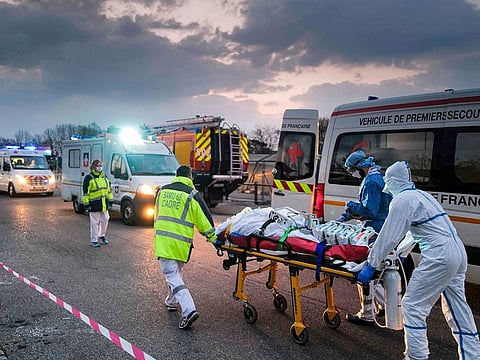Europe must act decisively against the new COVID wave
Spike in cases calls for increased vaccination and curbs to prevent spread of infection

The surge in COVID-19 cases in Europe is worrying since the continent accounted for 60 per cent of the recent global caseload. Several countries have been swift to deploy lockdowns or partial lockdowns, while others have closed public spaces to the unvaccinated. The result has been an outburst of anger on the streets.
Protests, clashes or riots have erupted in Austria, Belgium, the Netherlands, Croatia, Ireland, Denmark and Portugal, mostly over decisions to reimpose COVID curbs. Some of the anger has also been directed at moves to insist on vaccination.
Insufficient vaccine coverage is a reason for the uptick in infections, especially in Germany and Austria. Vaccines may not offer complete protection from the new coronavirus, but they reduce the severity of the infection and prevent certain death. That is why medical infrastructure in strongly vaccinated countries no longer feel the strain of the global pandemic. And it’s the unvaccinated who are bearing the bulk of the new infections.
Making vaccination a legal requirement
When Austria plans to make vaccination a legal requirement in February, it’s difficult to find fault with the officials, although it constrains individual freedom. The Czech Republic and Slovakia too aim to slap curbs on the unvaccinated. The jabs are essential to break the vicious cycle of infections, and newer infections are undesirable as they are likely to give rise to new strains of coronavirus.
One of the newest variants, Delta, drives infections around the world; increased transmissibility makes it the most feared strain. And this strain is responsible for the latest COVID wave sweeping Europe.
Since the 53-nation European region is at the centre of the pandemic, countries have to act decisively to prevent a slide back into the COVID chaos of 2020. The actions include curbs and vaccination. Or else, World Health Organisation’s Regional Director Hans Kluge’s warning of 50,000 more deaths by March will be a grim reality.
The memories of lockdowns aren’t pleasant, but those difficult days helped Europe tide over the worst COVID phase. When Russia records 1,252 deaths in a day and Poland 382, some form of restriction is required to break the chain of infections. Austria announced a national lockdown, Germany is considering one, but the United Kingdom doesn’t seem keen on it.
The new surge comes at a time when the world has learnt to live with the coronavirus. So a return to wearing masks will help, so also social distancing.

_resources1_16a08545d2f_medium.jpg?w=320&auto=format%2Ccompress&fit=max)





